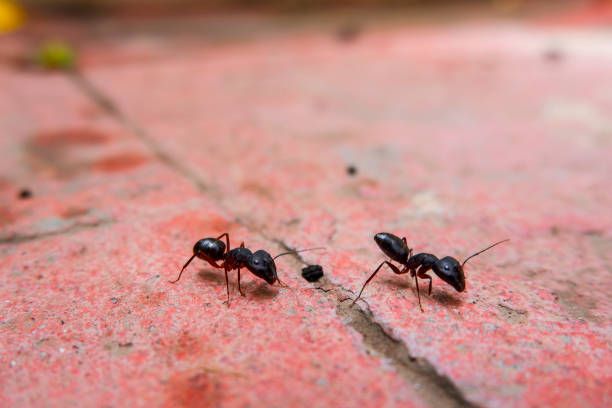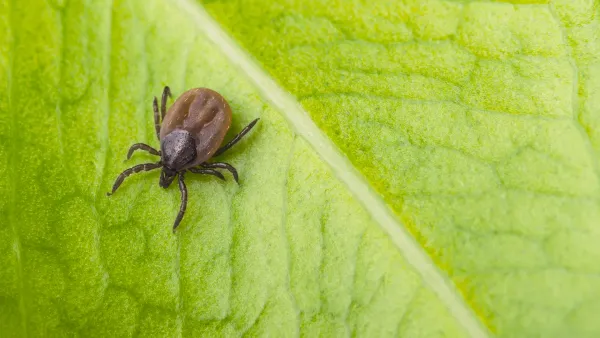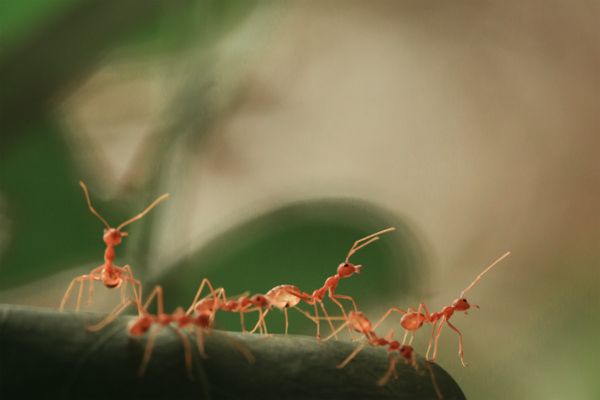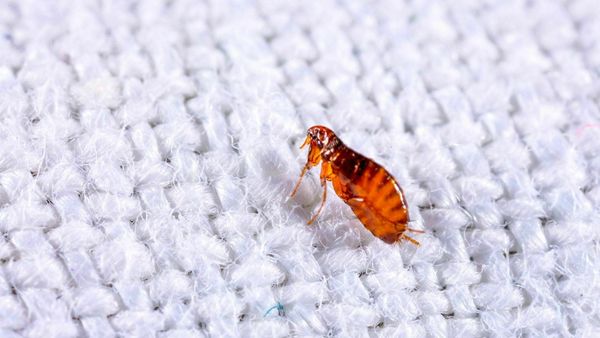Ants are among the most common pests found in households worldwide. While they may appear harmless, these tiny creatures can create havoc in your living space by invading your food and damaging your property.
If you're experiencing an ant infestation, you'll want to act fast to eliminate them and prevent future invasions. In this article, we'll explore simple, effective, and eco-friendly methods to help you get rid of ants in your home.
1. Identify the Type of Ants
The first step in addressing an ant infestation is identifying the type of ants you're dealing with. Different ant species have varying nesting habits and food preferences, which will influence the most effective removal methods. Common household ants include:
Carpenter ants
These large black ants can cause structural damage as they burrow through wood to create their nests.
Odorous house ants
These small, dark-brown ants emit a foul odor when crushed, and they're attracted to sweet foods.
Pavement ants
These black or brown ants typically nest outdoors under pavement but can also invade homes in search of food.
2. Block Entry Points
To prevent ants from entering your home, it's crucial to identify and seal any potential entry points. Ant colonies can easily sneak in through tiny gaps in your home's exterior, such as:
- Cracks in walls or foundations
- Gaps around windows and doors
- Openings around pipes and wires
To seal these entry points, use caulk, weather stripping, or other suitable materials. Regularly inspect your home for new openings and repair any damage that may create entry points for ants.
3. Keep Your Home Clean
Kill Ants
Maintaining a clean living space is essential in discouraging ants from invading your home and building ant nests. Ants are attracted to food sources and can quickly establish a colony if they find a reliable supply. To minimize ant infestations, follow these hygiene tips:
- Store food in airtight containers, especially sweet or sugary items that attract ants.
- Clean up spills and crumbs immediately, paying particular attention to kitchen countertops, floors, and dining areas.
- Regularly empty your trash and keep garbage cans sealed.
- Avoid leaving pet food out for extended periods, and clean pet feeding areas frequently.
4. Use Natural Repellents
Repelling Ants
There are several eco-friendly and natural repellents that can help deter ants from invading your home. Some popular options include:
- Diatomaceous earth: This natural powder, made from crushed fossilized algae, can be sprinkled around the perimeter of your home or near ant trails to deter ants and cause them to dehydrate.
- White vinegar: Mix equal parts water and white vinegar in a spray bottle and apply it to ant trails, entry points, and any areas where you've spotted ants. The vinegar scent will disrupt the ants' pheromone trails and deter them from returning.
- Essential oils: Ants are sensitive to certain essential oils, such as peppermint, eucalyptus, and lemon. Mix a few drops of your chosen oil with water in a spray bottle and apply it to ant-prone areas. These scents will not only repel ants but also leave your home smelling fresh.
5. Set Up Bait Traps
Ant Baits
Using bait traps is an effective way to eliminate ants at their source. These traps contain a mixture of food and slow-acting poison that ants will carry back to their colony. Once ingested by the queen and other ants, the poison will eventually wipe out the entire colony. To set up bait traps:
- Choose a bait that appeals to the ants in your home, such as sugary or protein-based bait.
- Place bait stations along ant trails or near their entry points.
- Monitor the bait stations and replace them as needed until the ant activity ceases.
6. Call a Professional Exterminator
Kill Ants
If your ant infestation persists despite trying these methods, it may be time to call a professional exterminator. They have the expertise and equipment to effectively handle even the most stubborn infestations. An exterminator can assess your situation, identify the type of ants you're dealing with, and recommend targeted treatment options that will eliminate the problem.
Remember, it's essential to address any underlying issues that may be attracting ants, such as moisture problems or structural damage. A professional exterminator can also help you identify and address these concerns to prevent future infestations.
Conclusion
End Ant Infestation
Dealing with ants in your home can be frustrating, but there are several effective methods to eliminate these unwanted guests. By identifying the type of ants, blocking entry points, maintaining a clean home, using natural repellents, setting up bait traps, and calling a professional exterminator if needed, you can successfully rid your home of ants and keep them from returning. Stay vigilant and proactive, and you'll enjoy an ant-free living space in no time.






